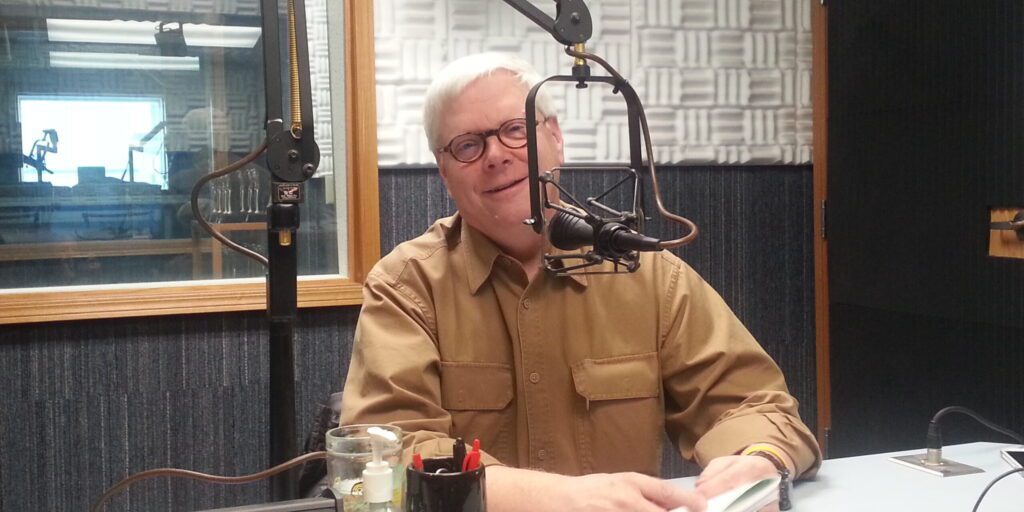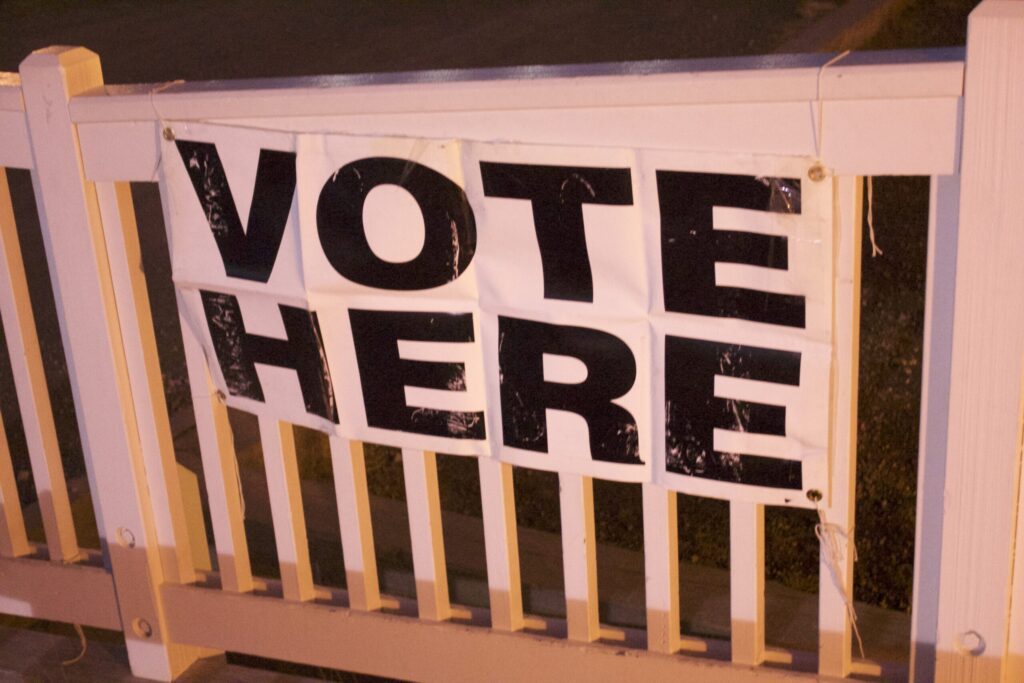KNOM SPOKE TO EACH of the four candidates running for Alaska’s sole seat in the US House of Representatives. This interview profiles Steve Lindbeck, Democratic candidate.
The paragraphs below summarize statements made by Mr. Lindbeck during his conversation with KNOM. Profiles of his opponents are also available: Don Young (incumbent), Jim McDermott, and Bernie Souphanavong.
Background: In 2007, Steve Lindbeck took over as CEO of Alaska Public Media and inherited $2 million in debt. After five years under Lindbeck’s leadership, he says Alaska Public Media had $3 million in reserves and had greatly expanded programming and operations. As sports editor at the Anchorage Times and associate editor at the Anchorage Daily News, Lindbeck traveled to towns and villages to tell the stories of Alaskans from all walks of life. In 1989, Lindbeck was the chief writer of the Alaska Oil Spill Commission report that examined the causes and consequences of the Exxon-Valdez oil spill. Lindbeck also previously worked as a vice chancellor at the University of Alaska Anchorage.
Why run for Congress?: “I have never run for office before, and a lot of people feel this is the year where that is a good thing, rather than a bad thing. I’ve been in public service throughout my work life, and so, for me, this is a natural extension. I would very much love to represent Alaskans in our nation’s capital because I am deeply Alaskan, and I’ve had the great good fortune of traveling and working throughout the state. And that, as you know, is a little bit unusual for people, it’s a big state and hard to get around as far as I’ve had the good fortune to do. And I feel it’s time for me to give back to the State,” stated Lindbeck.
Education: Lindbeck says he will push legislation to allow students to refinance student loan debt, reduce interest rates, support Pell Grants, and crack down on for-profit colleges and universities that mislead students. He adds that while education is primarily a state responsibility, the federal government can provide support, especially for Alaska Native students. There have been several federally-funded efforts to improve educational outcomes for Alaska Natives, especially through the Alaska Native Education Program. He says different approaches from other local, indigenous initiatives should also be considered.
Reaction to State Budget/Economy: Lindbeck plans to use his personal experience as the head of Alaska Public Media to help find a solution to the State’s financial situation. He says it’s not easy to make the difficult choices to cut spending on important things, but it can be done, and he has done it.
Rural Alaska/Arctic Issues: Besides working to protect subsistence needs, Lindbeck wants to focus on researching and investing in the challenges that come with living in the Arctic. That would also involve increasing internet access for rural Alaskan communities, he says.
Energy/Oil: Lindbeck says we must diversify our economy. He will work with the energy industry to invest in both environmentally-responsible natural resource development and renewable energy. He believes oil and gas development dominate Alaska’s economy and will continue to do so for the foreseeable future. Lindbeck says, Alaska must continue to invest in solar, tidal, and wind power, which reduces costs and provides clean, sustainable sources of energy, reducing reliance on costly fuel.
Opioids/Drugs: To help those who are addicted to pain killers, opioids, and other drugs, Lindbeck will make sure they have the tools they need to combat their addiction. Lindbeck says that knowing and understanding that these people are dealing with an illness, and to not criminalize them, is a better approach to this issue.
Final Thoughts: Lindbeck mentioned that through his job as director of the Alaska Humanities Forum, he “had the opportunity to work in community with people throughout the state, from Ketchikan to Kotzebue, from Unalaska to Fort Yukon and in between and beyond all of them. It was a great education in Alaska, especially with Alaska Native people…”







